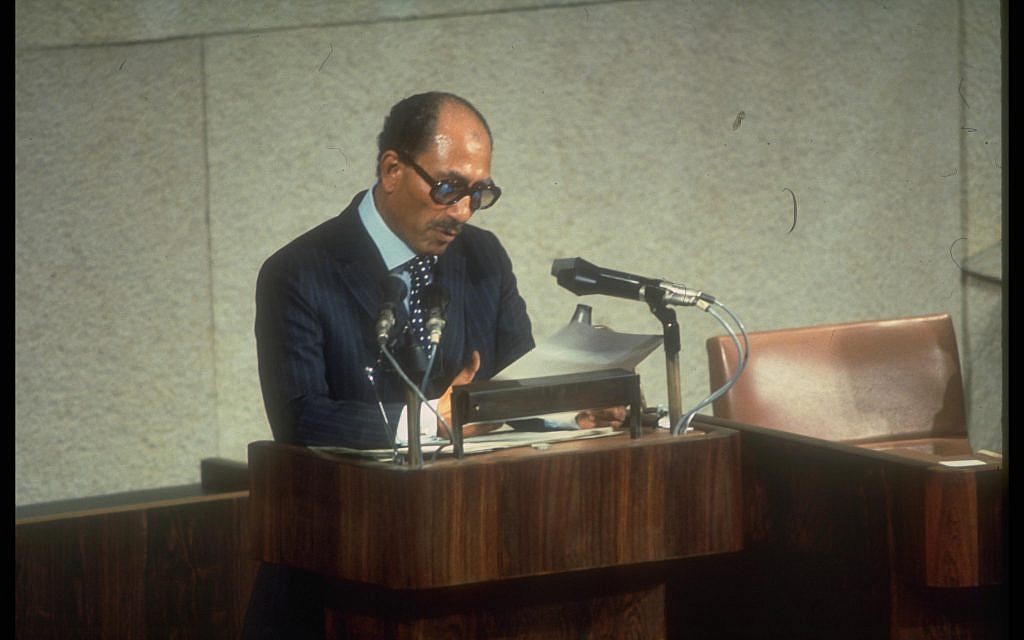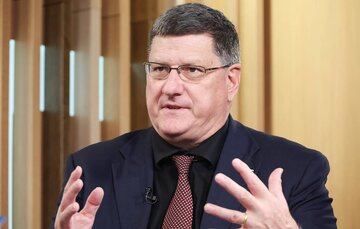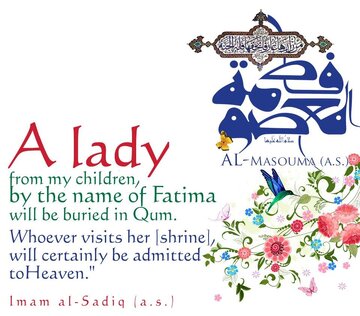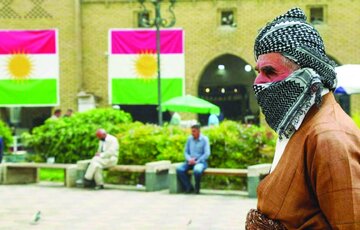AhlulBayt News Agency (ABNA): On November 20, 1977, Egypt’s Anwar Sadat delivered his "historic" speech at the Israeli Knesset. The day before, he had arrived at the occupied al-Quds in a move that the acrobatic "Faithful (Muslim) President", who was fond of show business and jumping from one camp to another, wanted to be a surprise to the whole world, especially to Israelis whom he believed will be impressed with his initiative to the extent that he would capture their hearts and thus push them towards peace and drive them to restore willingly the Egyptian territories occupied during the 1967 war against Egypt and the Arabs. What do Israelis want more? Here is the president of the largest Arab country against whom they fought five wars; he stepped their “homeland” without any conditions, offering them peace, security, and acceptance in a region that has long been hostile and rejecting. They will appreciate what he has done and will cooperate with him and will give him what he wants so that he can return to his people proud of “this great achievement”. This is what Anwar Sadat thought, and this is what Kissinger, Ceausescu, and Hassan II convinced him of.
Here are some highlights of that speech, which is well-documented in video and published in its entirety on the official website of the Israeli Knesset.
The speech was full of dreamy phrases and rosy expressions that look like what is usually said in beauty contests about love and peace:
“Innocent children, who lose the parents’ care and affection, are all our children.
A widowed wife is a human being who has the right to live in a happy family, whether she is Arab or Israeli
For the smile of every child born on our land. For all this, I made my decision to come to you.
To build a castle of peace for our future generations that enlightens the road towards progress, development and human advancement.
Why should these generations inherit the results of bloodshed, loss of life, orphanhood of children, widowhood of wives, demolition of families, and the groaning of victims?
And that what is to come is the new beginning of a new life, a life of love, goodness, freedom and peace.”
Of course, this kind of language is nothing more than tales and words, as there is no one on earth who hates goodness and peace or wants to deprive children of their smiles. As for the wars waged by nations and countries, they have their causes and goals, which do not include wives being widowed, or children losing the affection of their parents. In the case of the Egyptian people in particular, and the Arabs in general, they were subjected to brutal Zionist aggression, therefore they had no choice but to respond and defend themselves and their land.
And he was not done with these words about groaning and widows! He went on to assume the role of the saint, and the poet, when he said:
“O all victims of wars
Fill the earth and sky with hymns of peace
Fill the hearts and chests with hopes of peace
Make the chant real and fruitful.”
In a way that can only be described as trivial and absurd, Sadat spoke of the "psychological barrier" that separates Arabs and Israelis, which must be broken!
“There is a wall that constitutes a complex psychological barrier between you and us. A barrier of doubts, a barrier of aversion, a barrier of fear and deception, a barrier of illusions about any action or decision, a barrier of misinterpretation of every event or talk.
This psychological barrier, which I mentioned in official statements, constitutes 70% of the problem.
And I ask you today, while I visit you, why do we not extend our hands, with sincerity and faith, in order to break this barrier together?”
Is there anything more foolish than believing that the conflict in and over Palestine is a kind of psychological problem?! Sadat says 70% of the problem comes from the psychological barrier between the two parties! This means breaking the "psychological barrier" will make Arabs and Israelis love each other, and thus problems will be resolved and peace will prevail! As if there are no objective reasons for the conflict, occupation and displacement are just psychological matters that need Freud!
Of course, Sadat had to refer to religious texts on such an occasion:
“I am inspired by the verses of Allah – the wise and the glorious - when he said in Quran: Say: We believe in Allah and what was revealed to us and what was revealed to Abraham, Ismail, Isaac, Jacob, and Asbat, and what Moses, Jesus and the prophets were given from their Lord. We make no distinction between them and we are Muslims to him" the truth of God Almighty.”
And then he moved on to the Psalms of David:
“Why do we not recite together from the Psalms of David the Prophet :
To you, O Lord, I cry out. Hear the voice of my supplication, if I cry to you. And I lift up my hands to the altar of your sanctuary. Do not draw me to evil people and wrong-doers who address their companions with peace, and evil in their hearts. Give them according to their deeds, and according to the evil of their deeds. I seek peace and pursue It.”
He added :
“O God, I repeat with Zacharias his saying: Love, truth and peace.”
As for the political content in the speech, Sadat said:
“The complete withdrawal from the occupied territories after 1967 is a self-evident matter, about which we do not accept any argument, as we are not asking for a favor from anyone.”
However, this statement was proven to be mere propaganda and media business. Sadat wanted to show a strong position to his people and to the Arab nations. No complete withdrawal took place despite all the pleas of Sadat to Kissinger and then Jimmy Carter.
He also said:
“I did not come to you to conclude a bilateral agreement between Egypt and "Israel". This is not in Egypt's policy. The problem is not Egypt and "Israel". Any separate peace between Egypt and "Israel", or between any of the confrontation countries and "Israel", will not establish a permanent and just peace in the whole region.”
But what happened was that he actually concluded a bilateral peace deal between Egypt and "Israel", without resolving the Palestinian issue.
Sadat told the Israelis that they are most welcome in our region:
“You want to live with us in this part of the world. And I say to you, with all sincerity, we welcome you among us, safe and secure.”
And after emphasizing the right of "Israel" to live in peace and fully secure against any aggression from its Arab neighbors, Sadat added:
“We will accept any and all international guarantees, that you may request, and that you will accept.”
That is, he’s entering negotiations while accepting in advance all the guarantees that the other party may ask for, even if it means restricting Egypt's sovereignty over its land and borders (which did happen) and setting guidelines for its alliances and external relations, and even interfering in its internal affairs (such as education) under the pretext of protecting the peace.
Concerning al-Quds, it’s true that he said:
“There is an Arab land that "Israel" occupied, and is still occupying, by armed force, and we insist on achieving a complete withdrawal from it, including Arab Jerusalem.”
But he added phrases and words that indicate his readiness to accept other arrangements about it, other than the "complete withdrawal"! He added words about the three religions and a free and open city:
“Jerusalem, which I came to as the city of peace, was, and will always be, the living embodiment of coexistence among believers of the three religions. It is not acceptable for anyone to think about the special status of the city of Jerusalem, in the context of annexation or expansion. Rather, it must be a free city, Open to all believers”
Sadat mentioned the Palestinian people and their rights in his speech:
“The cause of the people of Palestine, and the legitimate rights of the people of Palestine, is no longer, today, a matter of neglect or denial by anyone. Rather, it is not possible for a mind to think that it is a subject of neglect or denial.”
And he added that one of the basics of a peace agreement is:
“Achieving the basic rights of the Palestinian people and their right to self-determination, including their right to establish their own state.”
However, one of the most important observations in his speech is that despite its length, he did not mention the issue of Palestinian refugees and their right to return to their homeland at all.
More than four decades after his speech, historical realities and facts on the ground proved that Sadat was not ahead of his time, and not even a genius with a vision. Rather, he was a short-sighted hasty politician who failed to understand the nature of the Zionist entity that until today still occupies Arab lands and refuses to acknowledge the rights of the Palestinian people. Sadat tied up the hands of Egypt with agreements and alliances and turned it into a state of subordination and dependence on America, whom he said that 99% of the cards are in its hands. Wars are still going on and did not stop, and peace did not come true, as the great illusion seller had predicted.
The opinions mentioned in this article do not necessarily reflect the opinion of ABNA24, but rather express the opinion of its writer exclusively.
/129





